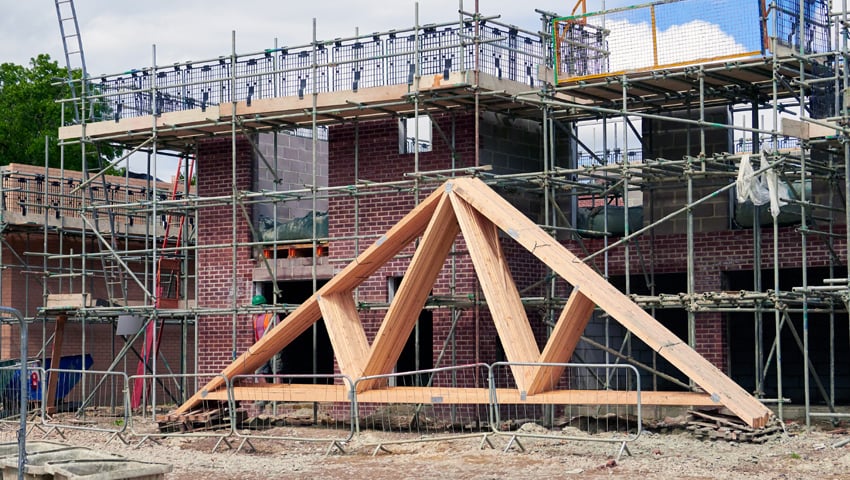Thursday’s election of the Labour government has created a sense of optimism within the property services industry that significant steps will be taken towards addressing the housing crisis. The scale of Labour’s victory provides the political capital needed to push through the ambitious housing policies outlined in their manifesto.
Labour’s commitment to deliver 1.5 million new homes over the next parliament remains an ambitious target, but one that’s necessary to tackle the crisis in affordable housing supply. There is hope that in addressing the housing crisis, Labour can also kickstart economic growth.
Lawrence Turner, Director of Boyer (part of Leaders Romans Group) said, “Labour’s pledge to immediately update the National Planning Policy Framework and invest in local planning authorities is a promising sign that they are serious about supporting and enabling sustainable development. A properly funded and resourced planning system is crucial in ensuring that new homes are delivered efficiently and in the right locations. We urge the Government to follow through on their commitment to recruit additional planning officers and provide the support needed to local authorities.
“Brownfield sites should be a priority to address the housing crisis and provide opportunities to maximise previously development land that is often well-served by public transport and infrastructure. It will be important for the government to publish more details on how they plan to implement this policy effectively.
“The review of the green belt has always been a politically contentious issue, but one that must be tackled if we are to build the homes we need in the most sustainable locations. Releasing land from the green belt for new homes in locations near to employment centres and transport hubs is crucial in ensuring that our cities remain vibrant and economically viable.
“The proposal for the creation of new towns is also a welcome pledge, but it is important to acknowledge that these developments will take many years to materialise. In the meantime, the new government must focus on delivering the short-term measures set out in their manifesto, including planning reforms and measures to reduce uncertainty for the development industry, and proper support and resourcing for local authorities to get local plans in place and determine planning applications.”
William Nichols, Regional Director at Lanpro, said, “Addressing planning reform and solving the housing crisis is a long term process. Quite rightly, changes to policy need to be consulted upon and carefully considered, but Labour will need to move quickly if these changes are to have time to bed in and deliver much needed new housing during the next Parliament. We understand that some changes to the NPPF will be made imminently, reverting the planning policy document to its pre-December 2023 form, but other more comprehensive changes may take longer.
“We look forward to seeing progress on the changes outlined in Labour’s manifesto, notably reviewing the governance arrangements for combined authorities to unblock decision making, a continuation and deintensification of the ‘brownfield first approach’, and a more strategic approach to green belt designation. The planning and development sector has an important role to play in in kickstarting economic growth, as the new government’s manifesto recognises. We look forward to being part of this.”
The new government is committed to the creation of several new towns. Many have welcomed this flagship policy, providing it is one part of a balanced overall development strategy.
Colin Brown, Head of Planning & Development at Carter Jonas said, “It will be important not to place all eggs in one basket, given the long lead-in times for delivery of new communities.
“Labour has also made it clear that a more strategic approach will be taken to the selective release of the Green Belt. In our view, this is the correct approach to take, especially having regard to the fact that many Green Belt locations are those where housing affordability is at or beyond crisis levels. But it remains to be seen exactly how land might be categorised as ‘grey belt’ and we suspect there will be rather more nuance than simply distinguishing beyond what is ‘green’ or ‘grey’.
“Labour has pledged to introduce effective new mechanisms for cross-boundary strategic planning, requiring all Combined and Mayoral Authorities to plan strategically for housing growth in their areas. While we welcome this, it remains to be seen if cross-boundary strategic planning becomes an advent for informal or more formal regional spatial strategies. In our view, this is precisely what is needed, and combined with mandatory housing targets, development strategies can be set at a city-regional level. This would bring many benefits and added certainty to the development industry, allowing more focus on the desirable co-location of housing and jobs.
“Similarly, we would like to see more high-quality, well-designed, and sustainable market and social housing but the change in administration will not easily or immediately address the dire shortage in materials, labour, and of course of planning staff as well.”
Mark Hall-Digweed, Head of Infrastructures at Carter Jonas said, “Attention should also focus on the issue of resources, including the significant requirements for people, skill sets, and materials needed for construction projects of all scales. There is a notable shortage of resources in these areas, and specific policies are urgently needed to address this issue to overcome these challenges and support delivery.”
